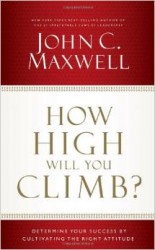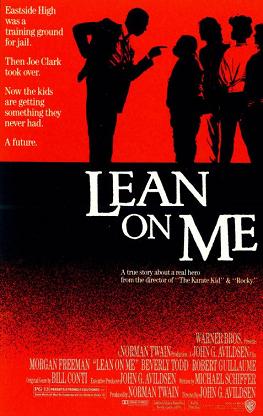
With over 800 posts in the archives, I know some of you have missed some good stuff over the years. I'm going to test out publishing some of these regularly to breathe some new life into the content and give you guys a chance to check them out. Enjoy!
AKA How HR management facilitates corporate and staff goals
In my time in the HR profession, I have had the pleasure of working with some leaders that taught me the importance of solid HR and how that looks in the day-to-day running of the business. Supporting leadership, managers, and employees is the primary goal for me as a human resource professional, though the “how” of that support can vary greatly by situation.
The most basic goal my performance is rated on? Helping the organization solve its problems through better people practices.Â
Recently I wrote about HR bringing solutions vs problems. I had some good feedback on the topic, so I wanted to offer a few examples of how to put some of the ideas into action. Here’s a refresh:
It’s time to be proactive. Start looking for ways you can cut costs, streamline your functions, save time for managers, etc. Look for some solutions to age-old problems, not just new ones. Not sure where to start? Ask some of your managers what their biggest pain points are with regard to the HR or recruiting processes. Ask your senior leaders what their biggest concerns are at a corporate level. Then take that information and use it.
Want to know the fastest, easiest way to prove the value of the HR department? Solve a problem that plagues the management team. Yes, it seems simple, but it is often overlooked because HR tends to exist in its own little “bubble†and never takes the time to actually find out what the business needs are from the HR function.
Let’s look at a few ways to find these underlying issues and consider ways to solve them.
Problem #1 Recruiting Time
Situation: The manager comes to you complaining that the length of the recruiting process is forcing her to be less productive and is straining her team. She wants to have more candidates to pick from and she wants them hired faster to reduce the amount of pressure placed on her and her staff while they are shorthanded.
Potential Solutions:
- Look at the recruiting process. Where do the longest wait times take place? Is it when the job is posted? Is it when you are waiting on the manager to schedule interviews? Figure it out and work to reduce the time needed for those specific steps.
- Coach the hiring manager (and the hiring team) on how to be better interviewers. Better selection means less chance of turnover and having to go through the interview process all over again.
- Define the ballpark cost of a bad hire for your organization. Then share that information with the hiring manager as a solid reason not to rush through the process.
Problem #2 Performance Management Process
Situation: one of the senior leadership team approaches you with the idea that you should stop using the current paper-based performance management process due to the burden it places on managers and staff and the lack of clear return on the time invested in the process. He thinks you should be able to talk normally and not have to sign a piece of paper to make it “official.”
Potential Solutions:
- If you have previous lawsuits that utilized the performance management process as a piece of evidence, pull that information together. Oftentimes when managers go through the motions (giving everyone a “meets expectations” rating even when they don’t, for instance), that blows up in their face when it’s time to go to court. Show how that could have been used to defend the company’s point of view if handled correctly.
- Find some of the statistics on organizational success as it ties to flowing goals from the corporate level to an individual level. For instance, one of my previous corporate goals was “Deliver On Time, Every Time.” In my own role, that could be distilled into responding to employee requests within 48 hours, getting all reporting (EEO-1, VETS-100, etc.) turned in 2-3 weeks early, or something else entirely. I’ve seen statistics that show companies who do this sort of flow-down process are more likely to be successful/profitable–find those numbers and use them to back up your suggestions.
- A good middle ground solution would be keeping the process, but making it leaner and more flexible. What if you reduce a four-page form to only a page while keeping the critical elements intact? What if you find a performance management system that saves your staff time and effort and eliminates the need for paper forms?
Problem #3 New Hire Orientation
Situation: You are seeing a steady climb in the turnover of staff with less than 6 months of experience on the job. With at least a general idea of the amount of money the turnover is costing the organization, you decide that you need to research the issue and come up with a few potential ideas to solve the problem, then brief your management team to get some guidance. In your research, you find out that some of the policies that were highlighted in the orientation session are not being followed by some managers.
Potential Solutions:
- You take the information about managers skipping orientation sessions back to the leadership team with the suggestion to sit and explain the issue and the cost of the turnover with the managers who are not following the rules.
- Furthermore, you find out that some of the managers are not even completing an orientation for their staff due to the time constraints. You decide that it’s time for a short training session for all managers on the cost of a good orientation session versus the decreased time to full productivity when someone has the full picture to work from.
- You learn that even though the rest of the managers are providing an orientation session, they are not deviating from the “script” on a corporate level, which means they are not adequately preparing the employee for what to expect at the team level. You make the call to work with a few of those managers to develop department-wide orientation conversation topics to help customize the sessions for what people really need to know–where to go for help, what the team culture is like, how people communicate, what the dynamics are among the teammates, etc.
These kinds of problem solving activities are what you need to carry out if you want to be seen as a partner to the business. Like other critical skills for HR pros, understanding how to facilitate the goals of the business via better people practices should be something you seek to improve regularly.
And these examples are easier because they are closely tied to HR functions. What if you heard about a problem with product quality or external customer service? How would you use people practices to influence those areas? It’s a big task, but human resource management (if done well) is an exciting and innovative field to be in!
What problems have you solved? What was the response from your “customer” (staff, management, leadership, etc.)?

 Well, I can’t say I’m surprised in the least. Despite colleges offering degrees in puppetry, pop culture, or the Beatles (yes, really), the list above is not very surprising.
Well, I can’t say I’m surprised in the least. Despite colleges offering degrees in puppetry, pop culture, or the Beatles (yes, really), the list above is not very surprising.
 I found the results intriguing, because while we say we need accountability first and foremost within our organizations, many leaders often do a poor job of actually communicating that need. Oh, they’ll tell people they need to be accountable, but when it comes down to time to measure performance, they’ll think about things that don’t really tie into accountability for results. Having analytics to drive those sorts of decisions will be a positive overall; however, it will also mean that leaders and managers can no longer rely on other unimportant “measures” of performance.
I found the results intriguing, because while we say we need accountability first and foremost within our organizations, many leaders often do a poor job of actually communicating that need. Oh, they’ll tell people they need to be accountable, but when it comes down to time to measure performance, they’ll think about things that don’t really tie into accountability for results. Having analytics to drive those sorts of decisions will be a positive overall; however, it will also mean that leaders and managers can no longer rely on other unimportant “measures” of performance.
 Lean On Me, featuring Morgan Freeman.
Lean On Me, featuring Morgan Freeman.